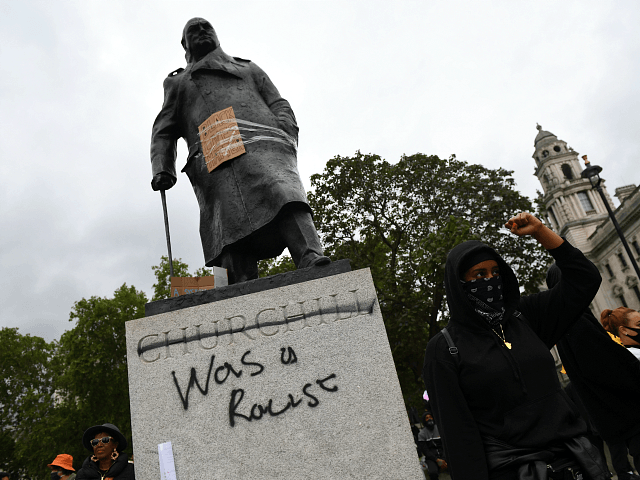More than one in three Britons have said that race relations have gotten worse since the Black Lives Matter protests in June 2020.
As the anniversary of the death of American George Floyd, which prompted the prominent resurgence of the Black Lives Matter movement in the UK, approached the one-year mark, YouGov asked Britons what they thought of the direction of race relations in the country before and after the protest.
The findings published on Tuesday revealed that more than one-third, 36 per cent, of the general population think that race relations have gotten worse post-BLM, up from 19 per cent before the movement’s resurgence last summer.
While a plurality, 41 per cent, think there has been no change, just eight per cent think that race relations have actually improved, down from 20 per cent who thought they were improving before the protests.
The sentiments revealed by the poll is largely in line with those reported in November 2020, when Opinium found that 55 per cent of Britons thought that BLM had made race relations in the UK worse, including 44 per cent of ethnic minorities.
Since June 2020, British towns and cities have seen waves of violent and destructive protests, including vandalism of Britain’s monuments and iconoclasm, including the activists pulling down and throwing into Bristol harbour the statue of Edward Colston over his links to the slave trade.
Exclusive: ‘If We Go Off-Script We’re Race-Traitors’ – Black Educator Mobbed After Criticising BLM, Critical Race Theory https://t.co/YnOiTxwK8x
— Breitbart London (@BreitbartLondon) September 16, 2020
The social unrest has also triggered local governments and other British institutions, including the British Museum and Church of England, to review its material culture for memorials or other artefacts that may be deemed as linked to racism, colonialism, or slavery.
Laws since enacted by the British government sought to stop widespread local-authority approved revisionist purges, legislation which played a part in administrators at Oriel College, Oxford, rejecting calls to remove the statue of its alumnus and benefactor Cecil Rhodes from its building’s facade.
Brexit leader Nigel Farage had warned since the early days of the protest movement that BLM UK was a “dangerous, Marxist organisation” which has an agenda that “would have made Lenin blush”.
After the statue of Winston Churchill had been twice vandalised, Farage said in June 2020 that for left-extremists, the goal was not simply to unperson the British wartime prime minister or other British historical figures like him, but to tear down the whole of Western civilisation, while thinly veiling their activities as acts of social justice and antiracism.
Year of the Statue Smashers: How BLM Violence and Identity Politics Crossed the Atlantic in 2020 https://t.co/iTvdMW0zjC
— Breitbart London (@BreitbartLondon) January 3, 2021
Farage had said: “What we’ve seen in London and other UK cities over the last couple of weeks now has almost nothing to do with racial equality and fairness, which, of course, all of us would like to see.
“This is now a Marxist anarchistic attempt to tear down and make us disrespect all the great symbols through our history from Winston Churchill and going right back through the centuries… These are the national heroes that we’ve brought up with.
“We’re now supposed to loathe them, and even more importantly, we’re supposed to loathe ourselves. This is about fundamentally changing the whole of our society. It must be resisted.”
He added: “They want to destroy the nation-state, capitalism, the family unit and virtually everything that we’ve stood for and previous generations have fought for. We need brave people in politics and the media to stand firm and not to allow us to live under mob rule.”
Police chief who did nothing as Black Lives Matter ripped down a historic statue gets a medal in Boris Johnson's New Year Honours (but @Nigel_Farage gets nothing) https://t.co/eWc1UP3fXH
— Breitbart London (@BreitbartLondon) December 31, 2020

COMMENTS
Please let us know if you're having issues with commenting.